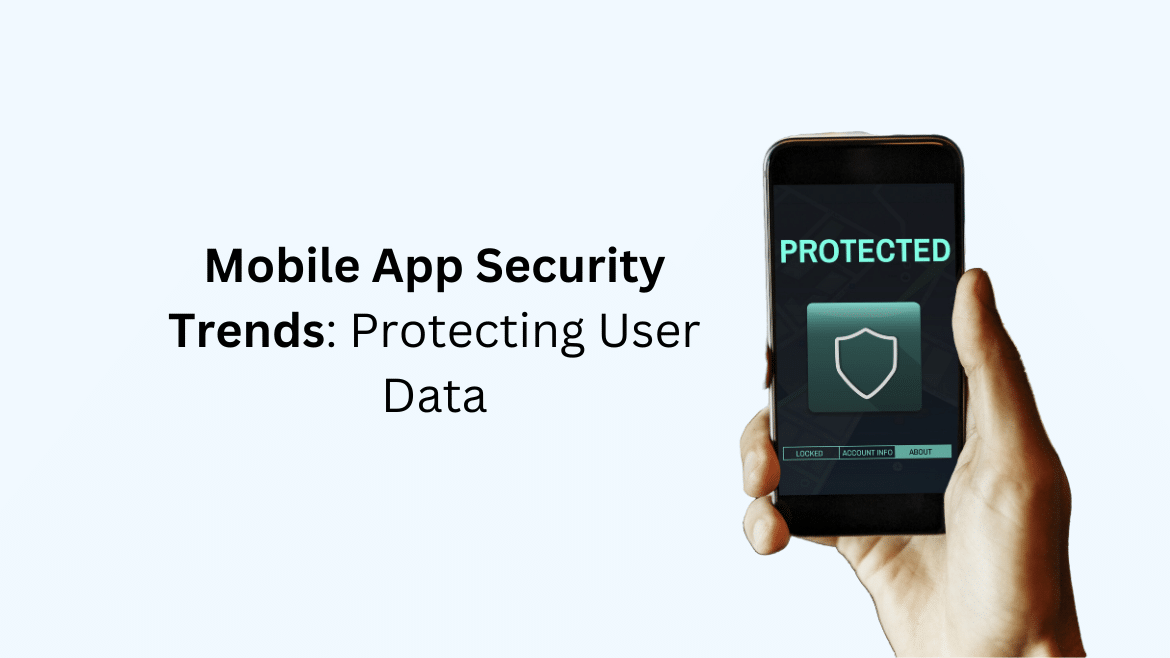Protecting User Data In Mobile Apps: A CNIL Compliance Overview

Table of Contents
Understanding CNIL Regulations and GDPR's Influence
The CNIL is the French data protection authority responsible for ensuring compliance with data protection laws within France. Its role is paramount in overseeing how organizations, including mobile app developers, collect, process, and store personal data. The influence of the GDPR (General Data Protection Regulation) is significant, as it forms the bedrock of many CNIL regulations. The GDPR establishes a framework for data protection across the European Union, and the CNIL plays a key role in its enforcement within France. Non-compliance can lead to substantial fines.
- Key principles of GDPR relevant to mobile app developers: These include lawfulness, fairness, and transparency; data should be collected and processed lawfully, fairly, and in a transparent manner. Users must understand how their data is being used.
- Data minimization and purpose limitation: Collect only the data absolutely necessary for the app's functionality and explicitly stated purpose. Avoid excessive data collection.
- Data subject rights: Users have the right to access, rectify, erase, restrict the processing of, object to the processing of, and port their personal data. Your app must facilitate these rights.
Data Collection and Consent Best Practices
Lawful bases for data collection are critical. You must have a legitimate reason for collecting user data. This could be consent, contract, legal obligation, or vital interests. For mobile apps, obtaining explicit and informed consent is paramount. This means users must actively agree to the processing of their data, understanding precisely what data is being collected and how it will be used.
- Types of consent: Opt-in consent is mandatory; users must actively check a box to agree. Opt-out consent is generally not sufficient for GDPR compliance.
- Clear and concise privacy policies: Your mobile app must have a readily accessible, easy-to-understand privacy policy detailing data collection practices.
- Granular consent options: Allow users to choose which specific types of data they are willing to share. Avoid blanket consent requests.
- Best practices for obtaining consent: Present consent requests clearly within the app's user flow, using plain language, and avoiding jargon.
Data Security Measures for Mobile Apps
Protecting user data requires robust security measures. Data breaches can have severe consequences, including hefty fines and reputational damage. Data encryption is a cornerstone of CNIL compliance.
- Data encryption methods: Implement encryption both in transit (while data is being transmitted) and at rest (when data is stored).
- Secure storage: Use secure storage methods for data on devices and servers, utilizing encryption and access control mechanisms.
- Regular security audits and penetration testing: Regularly assess your app's security vulnerabilities to identify and fix weaknesses before they are exploited.
- Robust access control: Limit access to sensitive user data to authorized personnel only, using strong authentication methods.
Data Transfers and International Compliance
Transferring user data outside the EU/EEA requires careful consideration and appropriate safeguards. The CNIL closely scrutinizes such transfers.
- Standard contractual clauses: These pre-approved contractual clauses ensure data protection when transferring data to third-party processors outside the EU/EEA.
- Binding Corporate Rules (BCRs): These internal company rules provide a framework for data protection when transferring data within a multinational organization.
- Consequences of non-compliance: Unauthorized data transfers can result in significant penalties from the CNIL.
Managing Data Breaches and Notifications
Having a clear data breach response plan is crucial. Prompt notification is key to mitigating potential harm.
- Steps to take in case of a data breach: Identify the breach, contain it, investigate its cause, and implement remedial measures.
- Reporting obligations to the CNIL: Report data breaches to the CNIL within 72 hours of becoming aware of them.
- Notification requirements to affected users: Inform users affected by a data breach promptly and transparently.
Conclusion
Protecting user data in mobile apps requires meticulous adherence to CNIL regulations, heavily influenced by GDPR. This includes obtaining informed consent, implementing robust security measures, managing data transfers correctly, and having a clear data breach response plan. Ensure your mobile app complies with CNIL regulations to safeguard user data and avoid potential penalties. Learn more about [link to relevant resource] and start building a CNIL-compliant mobile app today! Protecting user data is not just a legal requirement; it's a cornerstone of building trust and ensuring long-term success.

Featured Posts
-
 1 000 Shows And Counting Ru Pauls Drag Race Live Celebrates With Live Broadcast
Apr 30, 2025
1 000 Shows And Counting Ru Pauls Drag Race Live Celebrates With Live Broadcast
Apr 30, 2025 -
 Canadian Election Results Poilievres Defeat Projected By Cbc
Apr 30, 2025
Canadian Election Results Poilievres Defeat Projected By Cbc
Apr 30, 2025 -
 Vive La Clase Nacional De Boxeo En El Zocalo A Traves De Estas Fotos
Apr 30, 2025
Vive La Clase Nacional De Boxeo En El Zocalo A Traves De Estas Fotos
Apr 30, 2025 -
 Lich Thi Dau Va Thong Tin Phat Song Vong Chung Ket Thaco Cup 2025
Apr 30, 2025
Lich Thi Dau Va Thong Tin Phat Song Vong Chung Ket Thaco Cup 2025
Apr 30, 2025 -
 Beyonces Bold Levis Recreation A 1991 Fashion Statement
Apr 30, 2025
Beyonces Bold Levis Recreation A 1991 Fashion Statement
Apr 30, 2025
